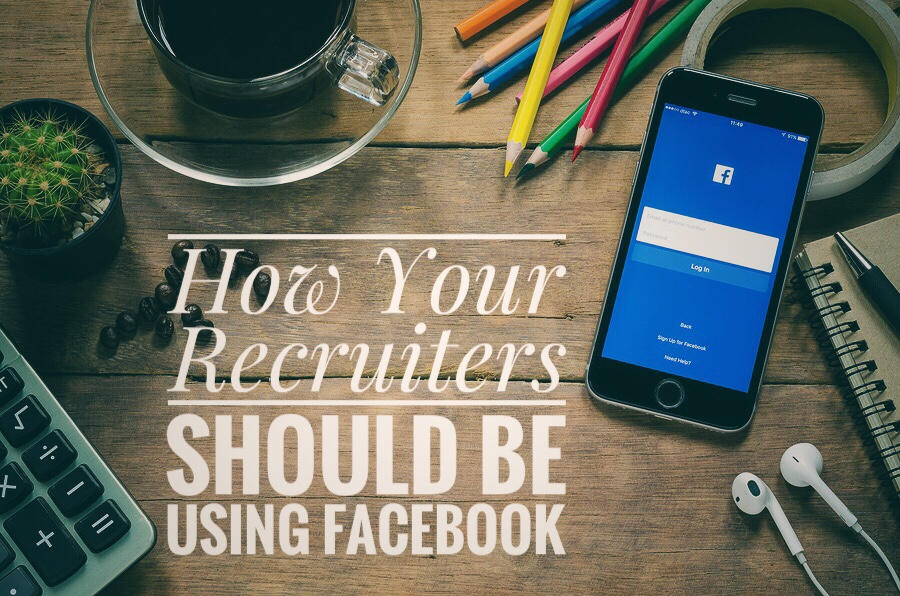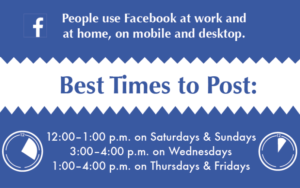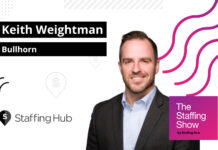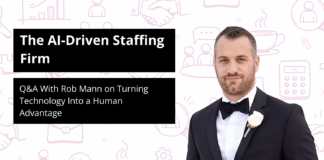
Facebook is that friend that everyone hangs out with. Your mom LOVES this friend. She wants Facebook around all the time, and so does your BFF’s 19-year-old daughter.
Your mom and your BFF’s daughter are just two of Facebook’s 1.71 billion monthly users. It’s one of the biggest databases a recruiter can use. Here’s how to make the most of it.
Why to use Facebook
Facebook is the biggest and oldest of all social media platforms. Start your social recruiting with Facebook.
Target candidates
When you’re looking for experienced passive candidates, Facebook is your BFF.
Focus your use
Build your agency’s identity on Facebook with high-value and shareable content that is relevant to your potential candidates. Establishing a strong Facebook persona helps when your recruiters begin to reach out to folks directly.
Best practices for Facebook recruitment
As you focus energies on Facebook as a recruiting tool, make sure you do the following:
- Develop a strategy for content posting and sharing
- Post 6-11 times a week. The optimum times to post are:
- 3 pm on Wednesdays
- 1 – 4 pm on Thursdays and Fridays
- 12 – 1 pm on the weekend
- Teach your recruiters to create dedicated Friend Lists for their candidates and clients. This is especially important if your recruiters use personal Facebook accounts for recruiting.
- Include images with any posting–these get more clicks!

Image via Hubspot
Attracting talent on Facebook
Ok, so you and your recruiters get best practices for Facebook in general, but how do you use it to find the talent you want?
Finding passive candidates
We talked about Facebook Graph searches in a quick guide to social recruiting. It’s how to turn Facebook into a recruiter’s favorite search engine.
In the search box, you can copy and paste, “people who live in city and like industry keyword”. Replace city and industry keyword with words that specify the candidate you’re looking for.
Facebook Groups
Facebook has a focused Groups section where you can browse for groups to join. Be sure you and your recruiters join interest groups like “Science and Tech” along with professionally-oriented groups.
Peruse various groups–some SPAM relentlessly (or it just feels like they do). You’ll want to avoid these groups. Instead, browse the wall and look at recent posts:
- Are posts within the past week?
- Are individuals posting and commenting?
Target posts with defined Friends lists
Your agency’s Facebook page, along with your recruiters’ personal accounts, should create specific friends lists.
Controls what your candidate-friends see
Candidates don’t want their Facebook feed overloaded with content that is A) Irrelevant, B) Annoying, or C) All of the above. Creating industry specific lists help you share content that they’ll find useful.
Separates personal content from the professional
This is strongly suggested for your recruiters who use personal accounts. These lists distinguish the friends that want to see the vacation and baby pics versus the “friends” that want to see the video on standing out at a job interview.
Specifically Facebook: The Daily Routine
People often try to quit using Facebook, but many don’t. Those who do return. Facebook is part of a person’s daily routine. Recruiters can work with candidate habits to develop solid relationships.
Facebook Basics and Glossary
If any of your recruiters are just starting out with Facebook, here’s a quick intro to FB-specific lingo.
Friend
Friends are people who you can see and share posts with.
Groups
Groups are dedicated pages used as a way to connect Facebook users with each other. They organize around professions, interests, background, etc.
Like
A Like is a quick way to react to a friend’s post. The reactions range from Like to Angry.
Messages
Messages are private communications between you and whoever is included on the message.
Page
A Facebook page is the profile for an organization–be it a business, brand, or public figure. This is what you would use to create your agency’s Facebook identity.
Profile
The Facebook profile is where an individual’s or a Page’s biography, personal information, timeline, photos, etc. are located. A link to your agency’s website should go here.
Tag
A tag is a label that can associate a person or a Page to a post or photo.
Timeline
A timeline appears on the profile page. This is where posts created by the person or agency appears. Posts that have tagged a person or agency also appear here.
Ready to learn more about attracting Millennials? Check out our blog post on best practices for recruiting Millennials.








